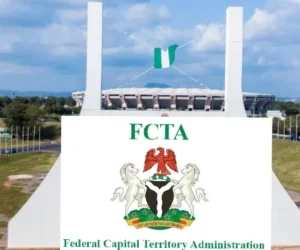1
The lingering ownership tussle within River Park Estate in Abuja took a fresh turn on August 21, 2025, as the High Court sitting in the Federal Capital Territory directed all parties involved to maintain the status quo and refrain from any activity on the contested land.
The order, issued by Justice C. O. Agashieze in Suit No. CV/2902/2025 between Jonah Capital Nigeria Limited and Paulo Homes Nigeria Limited, effectively halts further development on the properties under dispute, including Paulo Boulevard and projects linked to Aazik Homes.
The matter was adjourned without a fixed date for substantive hearing, freezing all activities within the estate until further notice.
A more controversial dimension to the case surfaced when counsel to Paulo Homes, Barrister Oluwabunmi S. Adebiyi, filed an additional affidavit dated August 18, 2025, attaching a letter authored on August 7 by Commissioner of Police Akin Fakorede.
The letter, addressed to the FCT Director of Lands and copied to the Abuja Geographic Information System (AGIS), Development Control, and Paul Odili of Paulo Homes, suggested that official dealings on the estate be channeled through Paulo Homes.
Its emergence in court records has stirred debate, as some legal observers say the correspondence could be seen as giving Paulo Homes undue recognition while litigation is still ongoing.
The letter has become a major talking point because it appears to sit at odds with existing directives from higher authorities.
Documents indicate that the Office of the Attorney General of the Federation had earlier instructed the police to suspend further action on the matter and forward all case files for review. Similarly, the Inspector-General of Police reportedly convened a meeting on July 2, 2025, where parties were urged to await proper verification of corporate records tied to the dispute.
With Fakorede’s letter entering the court’s records just weeks later, questions are now being raised about whether due process is being consistently followed and whether the circulation of such correspondence could complicate the Ministerial Committee’s ongoing work on the River Park issue.
Civil society groups and legal analysts have expressed concern that by copying the letter to agencies responsible for land administration, such as AGIS and Development Control, the correspondence may influence perceptions of ownership before the court delivers judgment.
While no wrongdoing has been formally established, the timing and recipients of the letter have fueled wider debate about transparency and the boundaries of administrative intervention in ongoing disputes.
For Abuja’s real estate and investment community, the River Park saga is more than just a land dispute. It has become a case study in how legal, administrative, and policing actions intersect in ways that can shape investor confidence. Analysts caution that unresolved controversies of this nature could affect how foreign and local investors view Nigeria’s capital as a safe place for property investments.
As proceedings continue, attention is expected to remain not only on the court’s eventual ruling but also on how the Fakorede letter will be weighed within the broader context of directives from the Attorney General, the Inspector-General of Police, and the Ministerial Committee. Stakeholders insist that transparency and strict adherence to due process will be essential.








